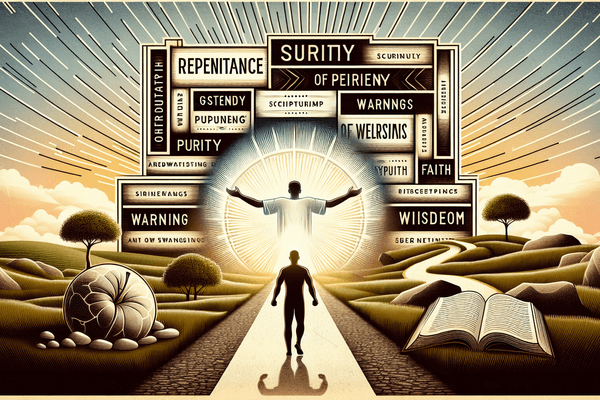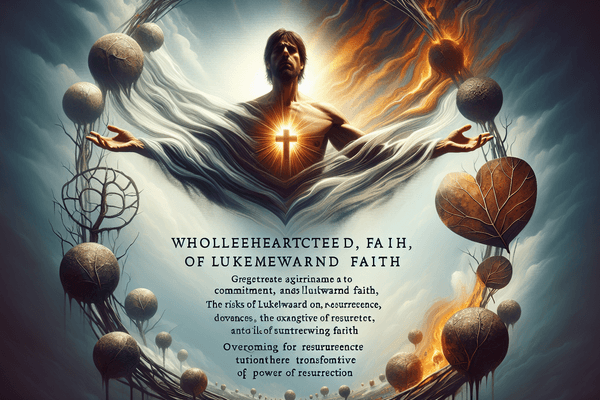Eschatological Earthquakes: Signs of the End Times
The Bible speaks of earthquakes as harbingers of the end times, a prelude to the final chapters of human history. These seismic events are mentioned alongside other cataclysms in Matthew 24:7-8, serving as 'the beginning of birth pains' that signal the approach of the end. Revelation 16:18 describes an unparalleled earthquake, a climactic upheaval preceding the establishment of a new order. The prophecies of Luke 21:11 and Mark 13:8 similarly foretell great earthquakes and are a reminder of the impermanence of our earthly existence. Amidst these forewarnings, Acts 2:19 assures us of signs both in the heavens and on earth—markers for the vigilant to discern the times. The biblical narrative thus intertwines natural disasters with spiritual anticipation, urging believers to readiness and reflection on their place in God's ultimate plan.
Baptism vs. Spiritual Nourishment: Distinguishing Christian Rites and Beliefs
While baptism and the Eucharist are both significant to Christian faith, they serve distinct spiritual functions. Baptism, as articulated in Romans 6:4, represents a burial with Christ and a resurrection to a new life—a public testament to faith and transformation. It is a declaration, as found in Galatians 3:27, of being 'clothed with Christ,' a visible sign of an inward grace. In contrast, the spiritual nourishment Jesus refers to in John 6:54 transcends ritual, symbolizing the continuous sustenance provided by Christ to those who believe. The act of baptism, linked to repentance and the reception of the Holy Spirit in Acts 2:38, is a moment of commitment, while the ongoing communion with Christ is a daily renewal of faith, an abiding presence as enduring as the spring of water welling up to eternal life in John 4:14. Together, these rites and beliefs form the mosaic of Christian devotion, each piece reflective of a facet of the divine-human relationship.
Conclusion
In traversing the theological terrain from Isaiah's call to purity to the anticipation of end-times earthquakes, the Bible offers a tapestry of teachings that guide, challenge, and inspire. The symbolic consumption of Christ's body and blood, and the baptismal waters of new birth, remind us of the transformative potential of faith. The metaphor of the unshaken reed compels us to withstand life's gusts with steadfast conviction. As we reflect on these scriptures, may we find the wisdom to navigate the complexities of our spiritual journeys, drawing closer to the divine, embracing the teachings of Christ, and standing firm in the face of the winds of change.






